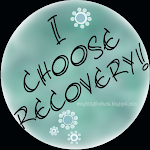
Anorexic Teen Challenges NI CareA 16-year-old girl with anorexia has won the right to challenge the lack of specialist treatment available for her in Northern Ireland.
She brought the High Court action in a bid to make the health service provide in-patient medical facilities for adolescents with eating disorders.
The girl, who cannot be named, is being treated at a London hospital, where her mother visits her once a week.
The girl's lawyers said the arrangement was causing family upheaval.
Granting leave to apply for a judicial review in the case, Mr Justice Weatherup ruled there was an arguable case that the public authorities had not taken into account the particular combination of circumstances.
The judge said: "When one reaches the stage that in-patient treatment is required for someone with anorexia nervosa it's easy to see that a life-threatening point has been reached.
Read in full here.
Depression, Appearance Concerns Predicted Disturbed Eating Behaviors In Girls With Diabetes
Early interventions that stress self-worth and personal image may help adolescent girls with diabetes develop positive feelings about themselves.
Researchers in Toronto identified predictors of the onset of disturbed eating behavior in 126 girls with type 1 diabetes aged 9 to 13 years. Each girl completed the Children’s Eating Disorder Examination Survey interview and four follow-up assessments during five years. The researchers defined disturbed eating behavior as “dieting for weight control, binge eating, self-induced vomiting or the use of diuretics, laxatives, insulin omission or intense exercise for weight control,” according to the abstract.
Read in full here.
Three Web Pages Promoting Anorexia Closed Down In Spain
The three pages were hosted on servers in the Basque Country.Eating Disorder Clinic Opens in Northampton
The Prosecutor in Guipúzcoa has ordered the closure of three web pages which were promoting anorexia.
The pages concerned told children how to hide what they were doing from their parents and all were reported to have ‘a high number of visits’, with 60% of those reading the pages at the early stages of the disease.
The pages gave details on how to lose weight and...
Read in full here.
NORTHAMPTON - Walden Behavioral Care, the first clinic focused on the treatment of eating disorders in the five-college area, held an open house for its new facility yesterday.Former Actress Gives Lecture On Media's Effects On Women
The clinic, located at 109 Main St. Northampton, is a new branch of the Walden Behavioral Care of Waltham, Mass.
The company's decision to open the clinic in Northampton was largely based upon the realization that there was a lack of treatment options in the area, said Jennifer Smith, Director of Outpatient Programs at the Northampton location.
"We were getting a lot of patients from western Massachusetts, but when it came time to follow up on them, there were no programs out there for them," Smith said.
Northampton's proximity to many colleges, including the University of Massachusetts, also contributed to the decision. According to the company's Web site, college students, especially women, are at a great risk for developing eating disorders, such as Anorexia, Bulimia, Binge-eating Disorder and EDNOS (Eating Disorder Not Otherwise Specified).
Read in full here.
Parents Should Pick Their Battles With Picky EatersCamille Copper spoke to a predominantly female crowd Monday night in a presentation titled "Discovering the truth about 'beauty' in popular culture," which was created to educate her audience about the problems with the media's portrayal of women in our society.
"From the time we're small kids in this culture the media tells us our roles," Cooper said.
For instance, doctor costumes used for dressing up are marketed exclusively to boys, while princess costumes are geared toward girls, she said.
Cooper put the spotlight on magazines such as "Cosmopolitan" and "Seventeen," which claim to help women be better versions of themselves. But Cooper said she is skeptical of these magazines and their real effects on women today.
Read in full here.
It’s a parent’s job to establish a regular mealtime routine, provide nutritious food and model good eating habits. The child gets to decide how much or even if he or she will eat, said Jodi Drake, a mother of two young daughters and a family and consumer science agent for K-State Research and Extension in Pratt County.Autobiography Shatters Marcia Brady Image
“Routine is important for kids; keeping regular mealtimes helps keep them in sync,” Drake said. “Whether they eat or not is not always important. Kids will eat when they’re hungry.”
Read in full here.
With the release of her autobiography, Maureen McCormick doesn't just shake up her picture-perfect image as Marcia Brady. She detonates it.
"Marcia Brady was pretty much a perfect person," the actress said from her home in Westlake Village, Calif. "I'm so far from being that person. My life was so opposite. It's interesting that people have related to me as being like that character, but nothing could be further from the truth."
Read in full here.
Sources:http://news.bbc.co.uk/2/hi/uk_news/northern_ireland/7680875.stm
http://www.endocrinetoday.com/view.aspx?rid=32132
http://www.typicallyspanish.com/news/publish/article_18536.shtml http://media.www.dailycollegian.com/media/storage/paper874/news/2008/10/22/News/Eating.Disorder.Clinic.Opens.In.Northampton-3498420.shtml http://tnjn.com/2008/oct/21/former-actress-gives-lecture-o/ http://www.pratttribune.com/lifestyle/food/x270973854/Parents-should-pick-their-battles-with-picky-eaters http://www.azcentral.com/community/chandler/articles/2008/10/21/20081021tr-maureen1022.html
picture source:bigfoto.com


 3
comments
3
comments




































